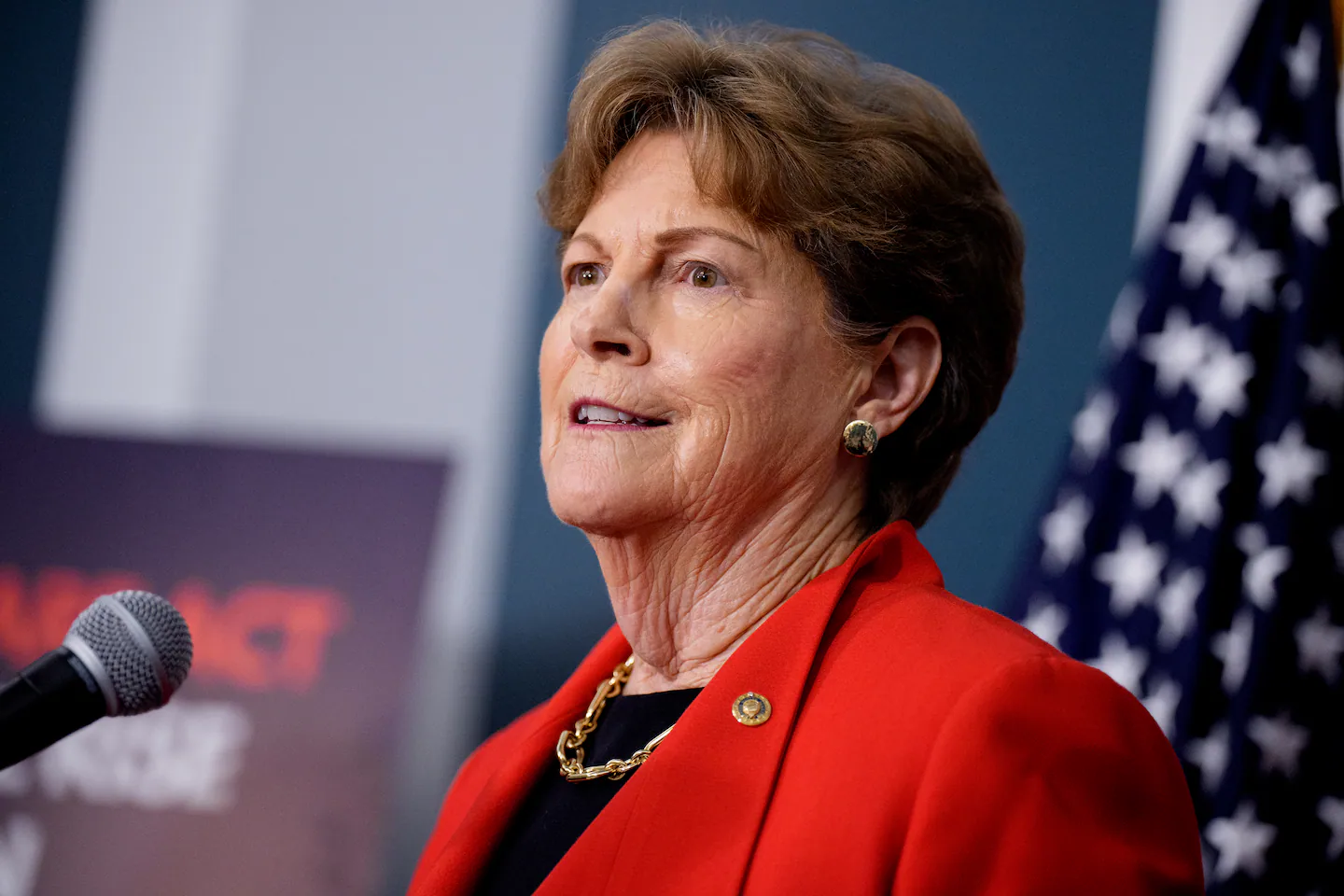
“I’ve been having conversations with my fellow senators about where we can find common ground with enough people in both parties so that we can reopen the government and address skyrocketing health care costs —and there’s a real urgency to doing so as people across this country get notices from insurance companies this month that prices are going up,“ Shaheen said in a statement to the Globe.
Through her staff, she declined an interview request.
It remained unclear Tuesday whether any deal that comes out of the informal talks would produce enough votes to end the shutdown. Democratic leaders have not been involved in the negotiations. And some senators doubted the talks would come to anything as they girded for a long stalemate.
“It’s the usual suspects,” said Senator John Kennedy, a Louisiana Republican. “But they just yap at each other all the time. Nothing ever comes of it.”
Still, Shaheen has credibility with both sides in the ongoing fight.
Democrats know she is an outspoken champion of extending the ACA tax credits, introducing legislation last January to make them permanent. At the same time, Senate Republicans have come to trust her as a negotiating partner after working with her in the past.
Senator John Hoeven, a Republican from North Dakota, got to know Shaheen when they were governors of their respective states. (Shaheen served from 1997-2003; Hoeven from 2000-2010.)
“We know each other, and I think it’s that kind of thing, members talking to members, where you have good relationships,” Hoeven said, noting he has also discussed the shutdown with Maine Senator Angus King, an independent who was governor of his state from 1995-2003. “She’s very good. People have a lot of respect for her on both sides.”
Some of that respect comes from Shaheen’s willingness to occasionally break party ranks.
She was among 10 Senate Democrats who provided the votes Republicans needed to overcome a filibuster and advance a short-term spending bill in March to avoid a shutdown, drawing the ire of progressives.
But this time, Shaheen joined with all but three Senate Democrats to reject a seven-week Republican funding bill last week, although she was one of the last senators to vote on the bill on Sept. 30 as her Democratic colleagues lobbied her on the Senate floor.
Shaheen has continued to vote against the Republicans’ short-term spending bill since then, but is seen as one of the Democrats who could eventually vote for it with the right assurances and help end the shutdown.
“We’ve had a few Democrats join us already,” Senate majority leader John Thune, a South Dakota Republican, said Tuesday. “We just need a handful more and we can reopen the government and get back to working for the American people.”
King, who has voted for the latest short-term Republican spending bill, has expressed frustration with the process, telling reporters Monday that he was considering pulling back his support if more progress isn’t made.
“I‘m waiting for some more solid assurances from the Republicans that we’re going to resolve this ACA issue because it’s imminent,” he said. “It’s not something that can wait. We need to do it now.”
Maine Republican Senator Susan Collins has also been talking with Democrats. She told reporters Monday that she was circulating a discussion draft of a proposal to end the shutdown that would involve discussions about extending the ACA tax credits after the government reopens, according to the news site NOTUS.
Heading to a meeting of Senate Democrats Tuesday, Shaheen said she hadn’t spoken to Collins yet about her proposal.
“I think anything that helps move us closer is positive,” Shaheen said.
Senator Gary Peters, a retiring Michigan Democrat who also voted to advance the Republican spending bill in March, echoed Shaheen’s sentiment.
“Whenever there’s discussion going on, that’s progress,” said Peters, who has voted against the latest Republican spending bill and has been participating in the private conversations. “We’re talking and there are substantive conversations.”
It’s a familiar spot for Shaheen, who has been part of several past efforts by small groups of Senate Democrats and Republicans to bridge the partisan divide on major issues, including during a brief government shutdown in early 2018.
This time, the task could be easier. Shaheen announced in March that she won’t be seeking reelection in 2026, making her less vulnerable to the potential blowback from the Democratic base if it’s unhappy with the deal.
President Trump said on Monday that he was negotiating with Democrats on health care. But Democratic leaders said they had not heard from him and Shaheen told reporters that she hadn’t either. Trump later walked back his comments in a social media post, saying he was “happy” to work with Democrats on health care “but first they must allow our Government to re-open.”
The White House tried to crank up the pressure on Democrats Tuesday with an Office of Management and Budget memo, first reported by Axios, asserting federal workers aren’t guaranteed back pay after the shutdown ends, in apparent violation of a law Trump signed in 2019.
“There are some people that don’t deserve to be taken care of, and we’ll take care of them in a different way,” Trump said of back pay for federal workers during an event at the White House on Tuesday. He said back pay “depends on who we’re talking about.”
Asked about the Axios report, Shaheen was typically circumspect. But she took a shot at Russ Vought, the controversial director of the White House Office of Management and Budget who also inflamed the situation last month by issuing a memo telling agencies to ready mass layoffs if a shutdown took place.
“It would be a lot easier to resolve the situation if Russ Vought would stop talking,” she said.